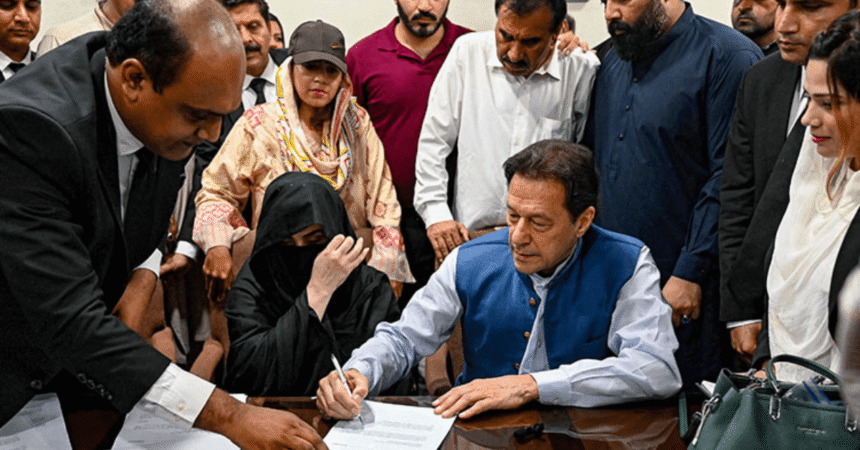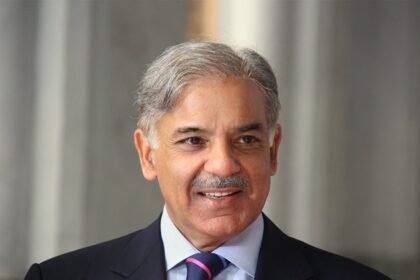In a significant legal development, the Rawalpindi accountability court has denied bail applications from former Prime Minister Imran Khan and his wife, Bushra Bibi, in the ongoing Toshakhana-II case. The ruling, delivered by Special Judge Central Shahrukh Arjumand, took place at Adiala Jail, where both defendants were present. This decision marks another critical chapter in the legal battles facing Khan, reflecting the complexities of the current political and legal landscape in Pakistan.
Background of the Toshakhana Case
The Toshakhana case pertains to allegations of misappropriation regarding state gifts received by government officials. The Toshakhana, or “treasure house,” is a government repository in Pakistan where gifts received by officials are stored. The law mandates that officials must deposit these gifts in the Toshakhana, which can then be retained only after the payment of a certain percentage of their value.
In this particular case, it is alleged that Imran Khan received a valuable jewelry set worth Rs 70 million from Saudi Arabia but only declared a payment of Rs 2.9 million, which raises questions about the legality of his actions. The prosecution argues that Khan failed to deposit these valuable items into the Toshakhana, thereby breaching legal protocols.
The Court Proceedings
The hearing began with prosecutor Zulfiqar Abbas Naqvi from the Federal Investigation Agency (FIA) presenting the case against Imran Khan and Bushra Bibi. The courtroom atmosphere was tense as both parties prepared to argue their positions. Khan and his wife were represented by Barrister Salman Safdar, who sought to demonstrate that the allegations were part of a broader political vendetta against the former Prime Minister.
The prosecution’s argument centered around the substantial evidence that they claimed demonstrated wrongdoing. They contended that the value of the gifts received was significantly higher than the amount paid by Khan, emphasizing that this constituted a serious violation of accountability standards. The prosecution requested the court to reject the bail pleas, arguing that the case against the couple was robust and clearly established.
Defense Arguments
In response, Barrister Salman Safdar argued that the Toshakhana-II case was not fundamentally different from previous allegations against Khan. He highlighted that both cases share similar accusations and that the details regarding the gifts were already under scrutiny in a previous reference. Safdar contended that the prosecution had failed to present new evidence that warranted a different outcome from previous hearings.
Safdar also asserted that denying bail would be unjust and would infringe upon the rights of the accused. He emphasized that Khan had a history of cooperating with legal authorities and that there was no flight risk involved. The defense maintained that the allegations were politically motivated and aimed at undermining Khan’s position in the political arena.
After deliberating on the arguments presented by both the prosecution and the defense, Judge Shahrukh Arjumand reserved his decision regarding the bail applications. Following a short recess, the court returned to pronounce its ruling: the bail pleas of Imran Khan and Bushra Bibi were rejected.
Implications of the Court’s Ruling
The rejection of bail carries significant implications for both Imran Khan and Bushra Bibi. For Khan, who has been a prominent figure in Pakistan’s political landscape, this ruling is another hurdle in an already tumultuous period. The former Prime Minister has faced numerous legal challenges since his ousting from power, and this latest decision adds to the perception of an ongoing campaign against him.
The political ramifications of the court’s decision extend beyond Khan and his immediate circle. The ongoing legal battles could influence public opinion, particularly among Khan’s supporters, who view these developments as politically motivated. The case may also serve as a rallying point for Khan’s political party, Pakistan Tehreek-e-Insaf (PTI), as they seek to mobilize public support against what they describe as a campaign of persecution.
Broader Context: The Political Landscape
The Toshakhana case exists within a broader context of political instability and contention in Pakistan. Since his removal from office, Imran Khan has continued to be a polarizing figure. His supporters argue that he remains a champion for justice and accountability, while his detractors contend that his government was marked by mismanagement and corruption.
The current government, led by a coalition of opposition parties, has sought to distance itself from Khan’s administration. Legal actions taken against him and members of his former government are viewed by some as necessary steps toward accountability, while others see them as part of a strategy to consolidate power and suppress dissent.
The Role of the National Accountability Bureau (NAB)
The National Accountability Bureau (NAB) has been instrumental in pursuing the Toshakhana case and other corruption allegations against Khan and his associates. Established to combat corruption, the NAB has faced criticism for its methods and perceived political biases. Critics argue that the bureau has often been used as a tool for political retribution rather than a genuine effort to uphold accountability.
In recent years, the NAB has faced accusations of overstepping its mandate, and its actions have led to calls for reform. The agency’s involvement in high-profile cases, including those against Khan, raises questions about its independence and the fairness of the legal processes involved.
Public Reaction
Public reaction to the court’s ruling has been mixed, reflecting the polarized political climate in Pakistan. Supporters of Imran Khan have taken to social media to voice their discontent, framing the court’s decision as part of a broader conspiracy against their leader. Many view Khan as a victim of political machinations, arguing that the legal challenges he faces are designed to weaken his political influence.
Conversely, opponents of Khan celebrate the court’s decision as a step toward accountability. They argue that public officials must be held to the same standards as ordinary citizens, and the rejection of bail sends a message that corruption will not be tolerated.
The Future of Imran Khan’s Political Career
As the legal battles continue, the future of Imran Khan’s political career remains uncertain. The Toshakhana case is just one of several legal challenges he faces, and the outcomes could have lasting effects on his ability to participate in politics. If convicted, Khan could face significant legal repercussions, including disqualification from holding public office.
However, Khan’s political resilience cannot be underestimated. He has demonstrated an ability to mobilize support even in the face of adversity, and his party has remained active in the political arena. The dynamics of the situation could change rapidly, depending on public sentiment and the outcomes of ongoing legal proceedings.
The rejection of bail pleas by the Rawalpindi accountability court represents a critical moment in the legal saga surrounding Imran Khan and Bushra Bibi. As the Toshakhana case unfolds, it serves as a reminder of the intricate interplay between politics and law in Pakistan. The implications of this ruling extend beyond the courtroom, affecting public opinion and shaping the future of political discourse in the country.
The evolving situation will require careful observation as legal challenges continue to unfold. Imran Khan’s fate, and that of his political ambitions, hangs in the balance as both supporters and opponents remain deeply invested in the outcome of these proceedings. As Pakistan navigates its complex political landscape, the intersection of accountability and governance will remain a central theme in the ongoing narrative surrounding its leaders.
ImranKhan #BushraBibi #ToshakhanaCase #PakistanPolitics #Accountability #RawalpindiCourt #LegalBattles #NAB #PoliticalDrama







